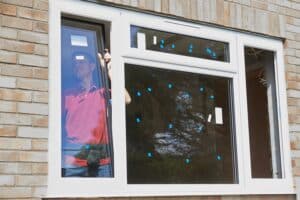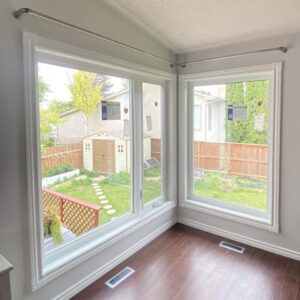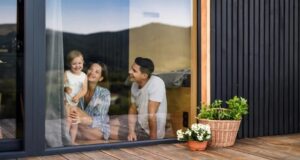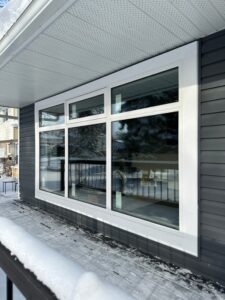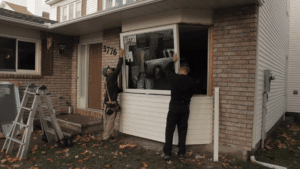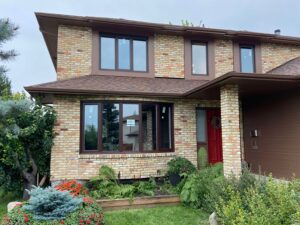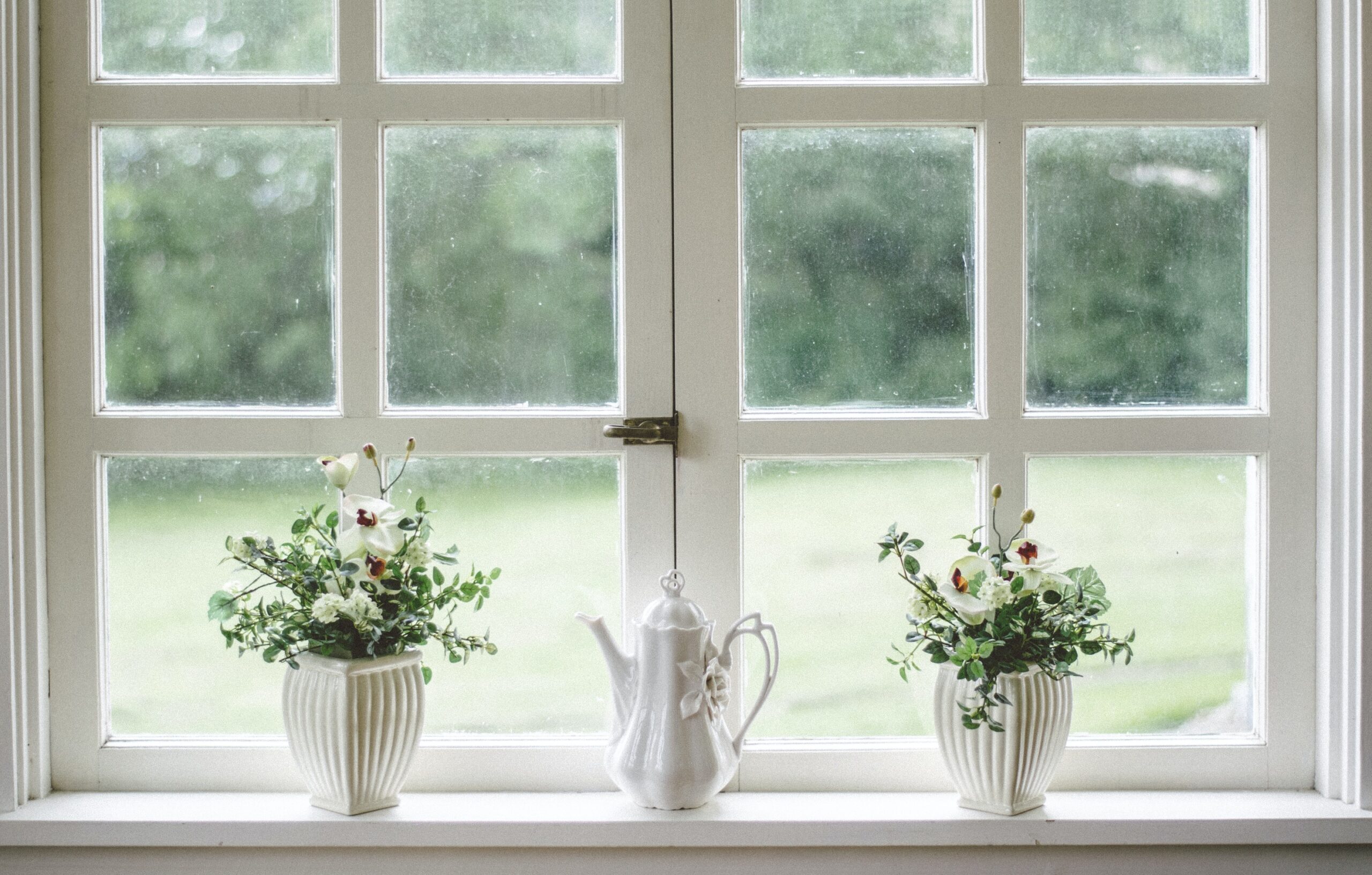
Good quality, energy-efficient, and well-designed windows play hand-in-hand with protecting your home and boosting its value. When your home’s windows reach the end of their lifespan or are outdated, it’s important to recognize the signs that they need replacing. That way, you’ll avoid costly repairs or unexpected replacements and instead enjoy an efficient and high-valued home.
Table of Contents
ToggleHere are 10 signs you need new windows:

1. Your windows are already old
Unless you built your home yourself, it’s more than likely your windows have been there for a while. And, as much as homeowners would love, windows don’t last forever. A well-maintained window might last slightly longer, but age will eventually catch up. A well-designed and high-quality window, though, can last upwards of 15-20 years. If you have older single-pane windows or aluminum sliders, they are definitely dated and need to be replaced to boost energy efficiency.
If you’re not sure how old your windows are, it’s worthwhile to bring in a professional to check. As window technology has advanced, you may find that your windows are simply outdated. You’re likely missing out on significant efficiency, safety benefits, and visual appeal. There is an investment required for new windows, but the long-term benefits give a good return.
2. Your energy bills are going up
According to Natural Resources Canada, low-efficiency windows can account for up to 35% of energy loss. That means that during the summer and winter, those energy bills are only going to increase. If your AC or furnace is working double-time to cool or warm your home, it will wear out faster. If that happens, you may find yourself with twice the expenses, from needing both new windows and new HVAC replacements.
Check if your windows are energy-efficient models or ENERGY STAR certified before those bills get too high. ENERGY STAR windows are upwards of 89% more efficient, which will help save a lot of money. Another option to look for is low-emissivity glass, which balances the heat in your home during the winter and summer. With these changes, you’ll quickly notice the improvements for your home and bills.
3. There’s fog or condensation between the panes
Depending on the weather, some condensation buildup on your windows is normal. Very hot, humid days or very cold days will likely cause some moisture buildup on the outside. That only becomes a problem if the issue is isolated to a few windows or if it’s because of a leak. If there is fog or condensation between the window panes, though, the problem becomes more serious.
Most windows have two or three panels which are full of insulating argon gas. When fog or condensation appears between these panels, it means that there is a leak and the gas has escaped. In this case, the window isn’t insulating properly anymore. That leads to a very costly amount of energy lost and the added risk of moisture damage. Condensation invites mould growth and decay of the frame, which will further spike those repair costs. If you ever notice buildup between your panels, don’t wait to call in a professional for help with new windows.
4. Your furniture is fading
Have you noticed your furniture is starting to look faded? Or that there is uneven colouring on your floors where the light shines in? The culprit of this is from UV light pouring in through the windows and fading your interior. Check to see if you own single-pane windows, especially if you live in an older home. These windows, paired without a low-E coating, will only reflect 25% of that UV light. If you do add a low-E coating, it will still only help block 75% of any UV light. As window technology has advanced, newer models are better equipped to block UV light. Despite the appeal of single-pane windows costing less upfront, they don’t have a lot of long-term benefits.
The best option is to invest in double or even triple-pane windows with a low-E coating. That way, year-round, you won’t have to worry about furniture fading or damaging UV radiation. Window films can also be added to your double-pane windows to block 99% of any UV light getting into your home. Not only will your furniture stay safe, but your home will stay noticeably cooler in the summer and warmer in the winter.
5. You feel drafts
There’s nothing pleasant about sitting at your desk or by a window and feeling a drafty chill. Beyond being uncomfortable, drafty windows means outside air is getting in where it shouldn’t. The more energy you use to keep your home warm, the more money is lost as if it goes out the window instead. There are other signs of drafty windows such as rattling, flickering candles near the window, or, in severe cases, water seeping in.
Drafts are fixable temporarily, but the best long-term solution is to replace your windows. Repairing caulking or applying weather-stripping will help keep drafts at bay for a while. That is a great solution if the issue is during the winter since you don’t want to be replacing windows then. Come spring, though, it’s best to call in the professionals to replace those windows.
6. You’re spending more money on repairs
There’s nothing wrong with investing some money to repair your windows, especially if the damage is small. Installing a new sash, adding some fresh paint, or repairing spots of damage is all fine. This is small yet cost-effective maintenance that will help keep your windows in top shape. That said, it stops being cost-effective when the repairs keep happening. Instead, set aside the money for repairs and save it for new windows. You’ll find you save much more money in the long run, thanks to those newer, efficient windows.
Window replacements can help save between 7-12% by replacing those windows with ENERGY STAR certified ones. According to Remodel Magazine’s cost vs value 2020 report as well, depending on the material of your new window, you can recoup between 69% and 73% of the cost. So, even upgrading the material will be a well worthwhile investment.
7. You want to change the style
Windows aren’t just about function; they also play a significant role in your home’s overall curb appeal. If your windows are outdated, in poor condition, or just lacking overall appeal, it’s a good sign for when to replace windows. Paint can go a long way in transforming appearances, but sometimes it’s not enough. Once you’ve invested in newer, better energy-efficient windows, it’s time to customize the appearance.
Start with the style, which on its own, can already improve your home. Ideally, you should pair windows to your home’s architecture, but if you live in a modern home, go for preference. Double-hung windows are very popular among homeowners and are easy to open, while casement is perfect for ventilation.
Frames are another great place to customize and can double as energy-efficient upgrades. Don’t forget a little colour as the final touch to give your windows that final boost. Either choose a complementary colour or go for a standout feature colour. A good rule of thumb is to work with your home’s architecture or even draw ideas from your neighbours.
8. There’s too much maintenance to do
Aesthetically, wood frames are one of the best choices for your home. It enhances the value of your home, adds a traditional look, and, with the right care, will last for many, many years. Still, wood requires a lot of maintenance. It must be treated to avoid becoming aged or warped and can become swollen with moisture if not carefully protected. It can be taxing having such high maintenance windows, which is why upgrading to something that needs less is ideal.
The best choice for a low maintenance window is to upgrade to vinyl or fibreglass windows. These are resistant to rot, warping, fading, and can easily last for decades. Aside from a once-a-year cleaning, you won’t have to worry about your new windows. Not only that, but these materials are high up on the energy-efficient ratings.
9. They don’t provide security
Upgrading your windows is about more than just getting the latest technology. It’s about keeping your home safe. New windows use stronger materials and have better safety features that are there to keep burglars out. Added features such as locks or grids can be added to your windows as well, but the first step should be to invest in new windows.
For that, casement windows are one of the best choices for home security. The crank mechanism to open the window can’t be used from outside, so there’s no way to get in. A lock can be added for double safety, but it’s not necessary for this style.
Sliding windows readily come with a cam action lock that stops the window from sliding open or closed. Burglar bars can also be added to stop any movement between the frame and sash completely. Double-hung windows are among the most popular styles and come with the right safety features. Like siding windows, they also come with a cam action lock to stop the window from sliding open. An added security feature can be easily added to the top of the window to secure the top sash from opening.
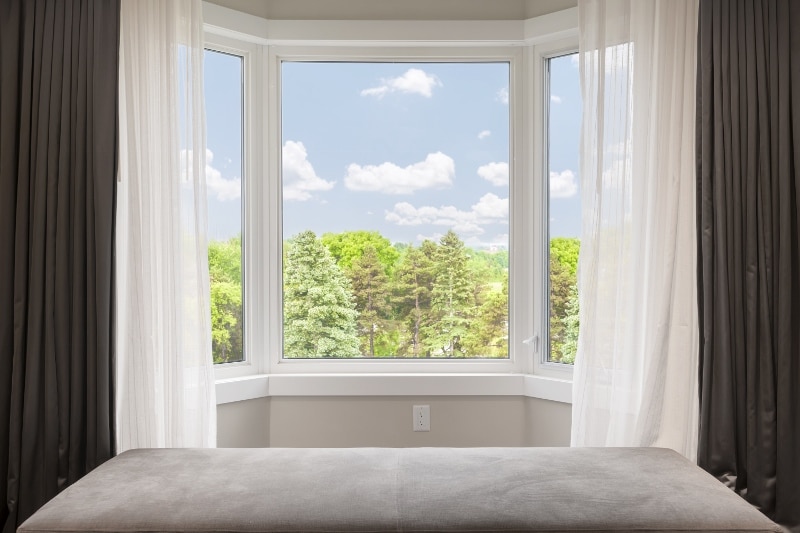
10. You can hear everything from outside loud and clear
From loud traffic, early morning birdsong, or mowing in the summer, there are many noises that go on outside. If you’re inside your home with the windows closed, though, those sounds should stay out. If your windows are providing little to no noise reduction, it’s a good indication for when to replace windows, especially old ones. Single-pane windows, for example, are not only bad for energy efficiency, but they do little to soundproof your home. Just choosing double glazed windows alone won’t help with noise, so it’s necessary to look for the right features.
Thicker glass, for a start, will help dampen the amount of noise that travels through. Adding more space between each pane as well, will further help. For this reason, many manufacturers recommend triple-pane windows for noise reduction. A third factor is to choose laminated glass over tampered. Laminate is specially designed for noise reduction as it has an extra layer of plastic that acts as an added barrier against sound.
Keep in mind, though, that all noise won’t be 100% eliminated. Soundproof windows will help with 70% – 90% of the noise, depending on how many features you choose.
Leave the installation to the pros
When you’re ready to install those new windows, don’t be tempted to DIY to save some costs. Windows may be a costly upfront investment, but when installed right, they offer great ROI. The best way to ensure that happens is to leave the installations to the professionals. They have the right skills and tools, and they’ll ensure that your windows are energy efficient. Installing windows incorrectly can result in more energy lost than gained by choosing new windows. Also, when you work with professionals, they will help determine the right style, design, and colours to complement your home perfectly.
Professionals are also backed by warranties that not only protect against damages during installation but are long-term. If a window breaks during the installation, you won’t have to worry about covering the replacement costs. Once the window is installed, you can get a limited or lifetime warranty to protect your windows against unexpected future damage or wear. When you DIY, you risk losing out on any warranty protection.
Remember that your windows are an overall home investment. They’ll help benefit and improve your home’s appearance, efficiency, and boost value. It’s always worthwhile to ensure that your windows last for many years to come with benefits like that.

